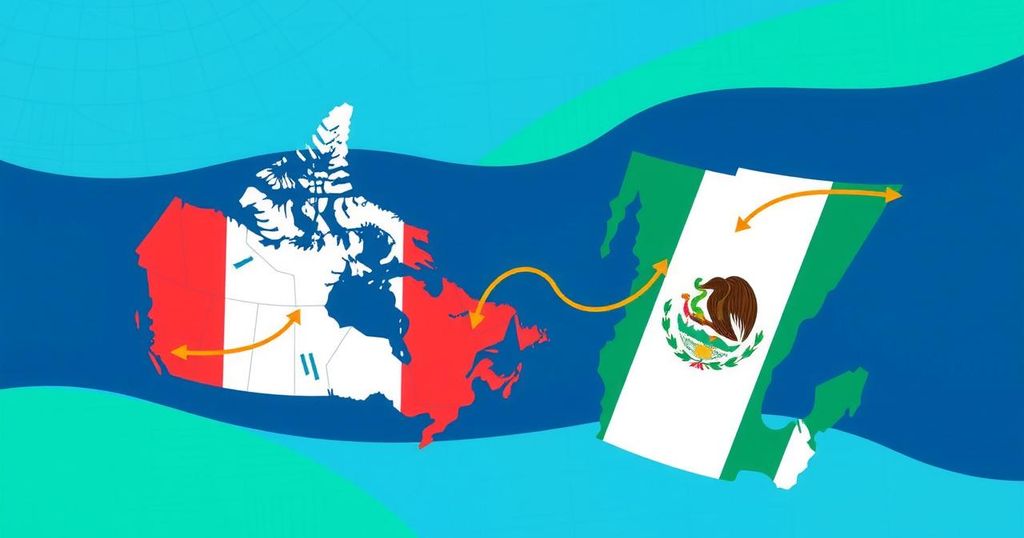Canada and Mexico Exempted from Trump’s April 2 Reciprocal Tariffs

On April 2, 2024, President Donald Trump announced new reciprocal tariffs but excluded Canada and Mexico. The two countries continue to face existing tariffs and may encounter Trump’s baseline tariff rates if negotiated. Canada’s response was proactive, focusing on protecting jobs, while Mexico is expected to announce its position shortly. Trump’s tariffs vary widely for other nations, including notably high rates for China.
On April 2, 2024, President Donald Trump announced reciprocal tariffs aimed at various countries, stating that the United States had been “looted, pillaged, raped, plundered” by foreign nations. Notably, Canada and Mexico were excluded from these new tariffs, much to their relief, as the US imposed baseline tariff rates starting at 10 percent, escalating to 45 percent on select imports.
Despite their exemption from the April 2 tariffs, it is crucial to note that both Canada and Mexico continue to face existing tariffs on their goods. Notably, Trump previously instituted a 25 percent duty on imports from both countries, along with a 10 percent tariff on Canadian energy and potash imports that remain applicable despite the announcement.
Goods entering the United States under the US-Mexico-Canada Agreement (USMCA) will be exempt from the new tariffs, as confirmed by news agency AFP. However, should Canada or Mexico negotiate changes to the duties, they may encounter the recent baseline tariff rates introduced by Trump. Canadian Prime Minister Mark Carney commented, “We are going to fight these tariffs with counter-measures. We are going to protect our workers,” indicating a proactive stance against these tariffs.
Additionally, Mexican President Claudia Sheinbaum is anticipated to announce Mexico’s formal response at her upcoming press conference. Notably, Russia was omitted from Trump’s tariff list, alongside countries like Cuba, Belarus, and North Korea, all of which are already under sanctions that hinder substantial trade.
The reciprocal tariffs imposed by the United States introduce varying rates for numerous nations, beginning with a baseline of 10 percent. Specific tariffs include 26 percent for India, 20 percent for the European Union, up to 45 percent for Vietnam, and 34 percent for China, which has a reported substantial trade surplus with the US, prompting intensified tariffs under the current administration.
In summary, Canada and Mexico successfully evaded Donald Trump’s latest reciprocal tariffs due to existing tariffs already in place that apply to their goods. While exempt from new tariffs associated with the April 2 announcement, they continue to be subject to previously established duties. Canada expresses a firm commitment to protect its labor force in response to these tariffs, while Mexico is anticipated to present its official stance soon. The situation highlights ongoing trade complexities amid Trump’s broader tariff strategy targeting various nations.
Original Source: www.hindustantimes.com






